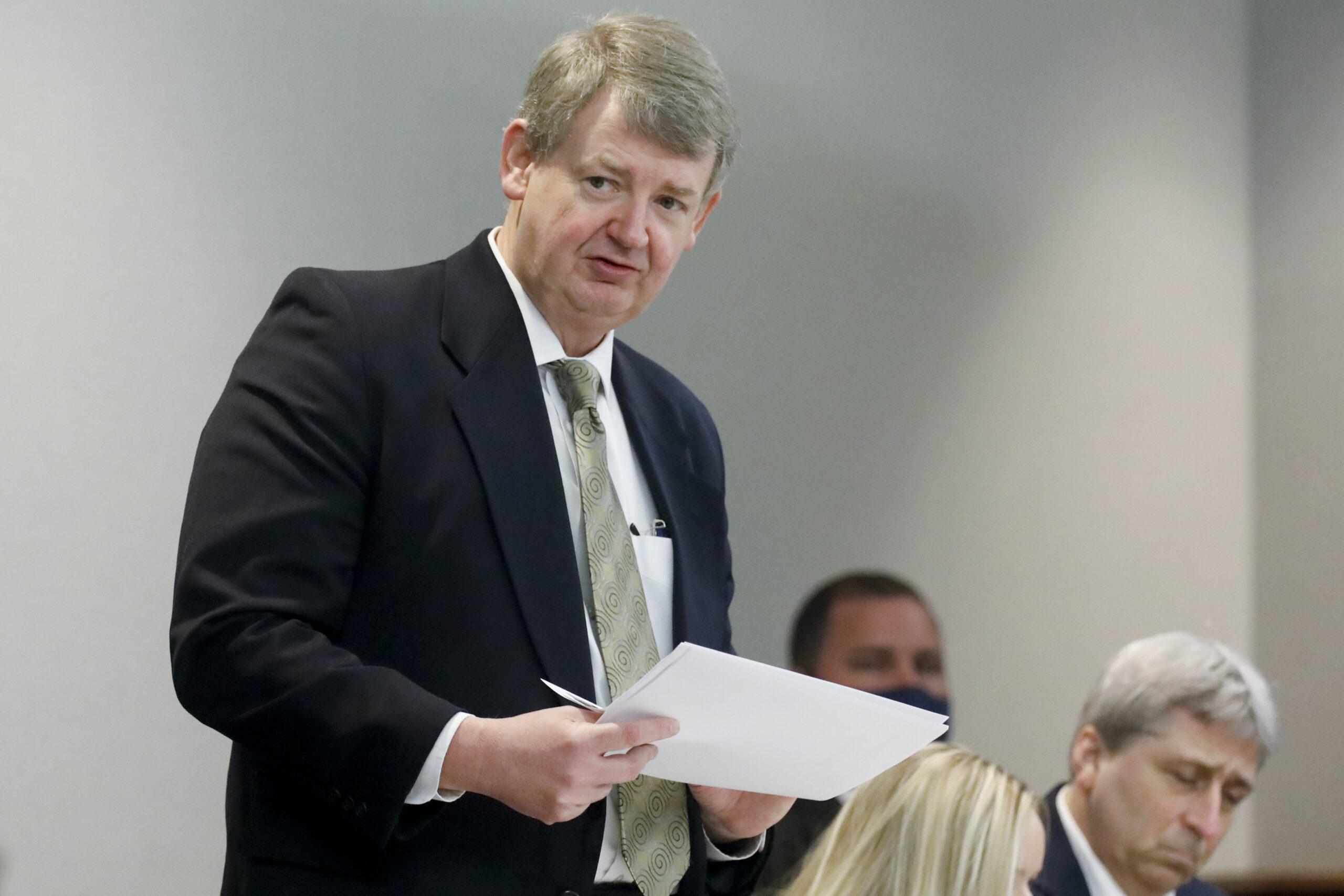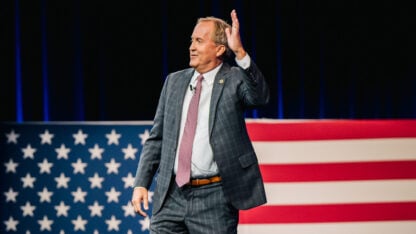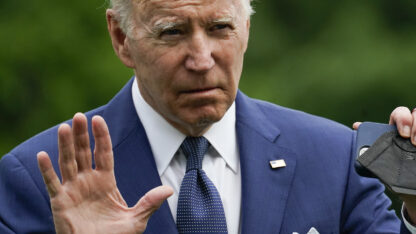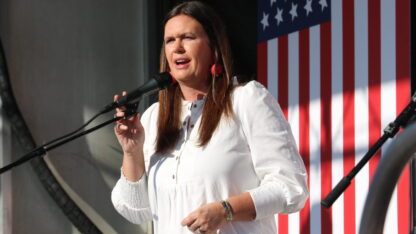Attorney likens Arbery rally to `public lynching’ of white defendants

Defense attorney Kevin Gough speaks during the trial of Greg McMichael and his son, Travis McMichael, and a neighbor, William “Roddie” Bryan at the Glynn County Courthouse, Friday, Nov. 19, 2021, in Brunswick, Ga. The three are charged with the February 2020 slaying of 25-year-old Ahmaud Arbery.
Octavio Jones/Pool Photo via AP
The defense attorney who caused an outcry by saying Black pastors should be barred from the murder trial over Ahmaud Arbery’s death declared in court Friday that a courthouse rally supporting the slain Black man’s family was comparable to a “public lynching” of the three white defendants.
“This case has been infected by things that have nothing to do with the guilt or innocence of these defendants,” attorney Kevin Gough told the judge, arguing that civil rights activists are trying to influence the disproportionately white jury.
Gough renewed a request for a mistrial the day after the Rev. Al Sharpton, the Rev. Jesse Jackson and Martin Luther King III joined hundreds of pastors, most of them Black, praying and rallying at the steps of the Glynn County courthouse. The event was organized after Gough last week objected to Sharpton sitting in the back row of the courtroom with Arbery’s parents.
“This is what a public lynching looks like in the 21st century,” Gough told the judge, saying his client’s right to a fair trial was being violated by a “left woke mob.”
WABE’s Lisa Hagen, who is covering the trial in Brunswick, talked with “All Things Considered” host Jim Burress about Gough’s latest controversial statements.
“The prosecution made it clear that they believe it’s a defense strategy of … inflaming the discourse around this in order to argue for a mistrial and argue for appeal,” said Hagen.
Superior Court Judge Timothy Walmsley “immediately” dismissed the mistrial motion with little discussion, according to Hagen.
“I don’t recall any disruption in the courtroom itself,” the judge said of Thursday’s rally, which coincided with defense testimony.
Gough is the lead attorney for William “Roddie” Bryan, who joined father and son Greg and Travis McMichael in pursuing Arbery in pickup trucks after spotting the 25-year-old man running in their coastal Georgia neighborhood on Feb. 23, 2020. Bryan took cellphone video of Travis McMichael shooting Arbery as he threw punches and grabbed for the shotgun.
Arbery’s killing later became part of the broader reckoning on racial injustice in the criminal legal system after a string of fatal encounters between Black people and police.
Gough has repeatedly raised concerns about outside activists seeking to influence the case. He made the lynching remark after prosecutor Linda Dunikoski accused Gough of intentionally provoking outrage among Black pastors and civil rights activists.
“They are responding to what he strategically, knowingly, intelligently did so that there would be a response so that he could then complain of it,” Dunikoski said. “That is good lawyering right there. Because now he’s motioned for a mistrial based on something that he caused.”
Arbery’s mother, Wanda Cooper-Jones, called Gough’s latest comments “ridiculous.”
“He’s done things repeatedly that just surprise me that he would say,” she told reporters outside the courthouse. “Very surprising, but not unexpected I would say.”
The judge met with attorneys Friday to discuss what his legal instructions to the jury will be after closing arguments on Monday.
Defense attorneys say the McMichaels and Bryan committed no crimes, but were legally trying to detain Arbery for police because they suspected he was a burglar. Travis McMichael testified that he shot Arbery in self-defense.
Prosecutors say there’s no justification for what the men did and no evidence that Arbery had committed any crimes in the neighborhood.
For a deeper exploration of Ahmaud Arbery’s story, listen to WABE’s podcast, “Buried Truths.” Hosted by journalist, professor, and Pulitzer-prize-winning author Hank Klibanoff, season three of “Buried Truths” explores the Arbery murder and its direct ties to racially motivated murders of the past in Georgia.








